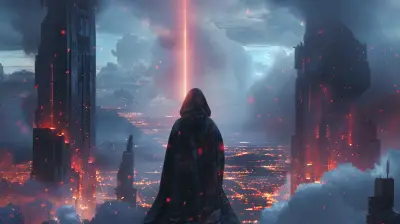The Appeal of Tactical RPGs: Planning, Strategy, and Victory
24 June 2025
Let’s be honest—some games are just mindless fun, right? You jump in, shoot stuff, and call it a day. But then there are games that feel like a mental workout. Games that demand patience and planning. Games that ask you to stop, think, and strategize. That’s where Tactical RPGs (or TRPGs) shine like a knight’s polished armor.
Whether you’re a veteran tactician or just dipping your toes into the genre, there’s something undeniably satisfying about pulling off a perfectly planned move that turns the tide of a battle. So, in this article, we’re diving deep into the strategic magic of TRPGs—we’re talking planning, brain-bending strategy, and that sweet, sweet taste of victory. Ready your grid maps and sharpen your swords!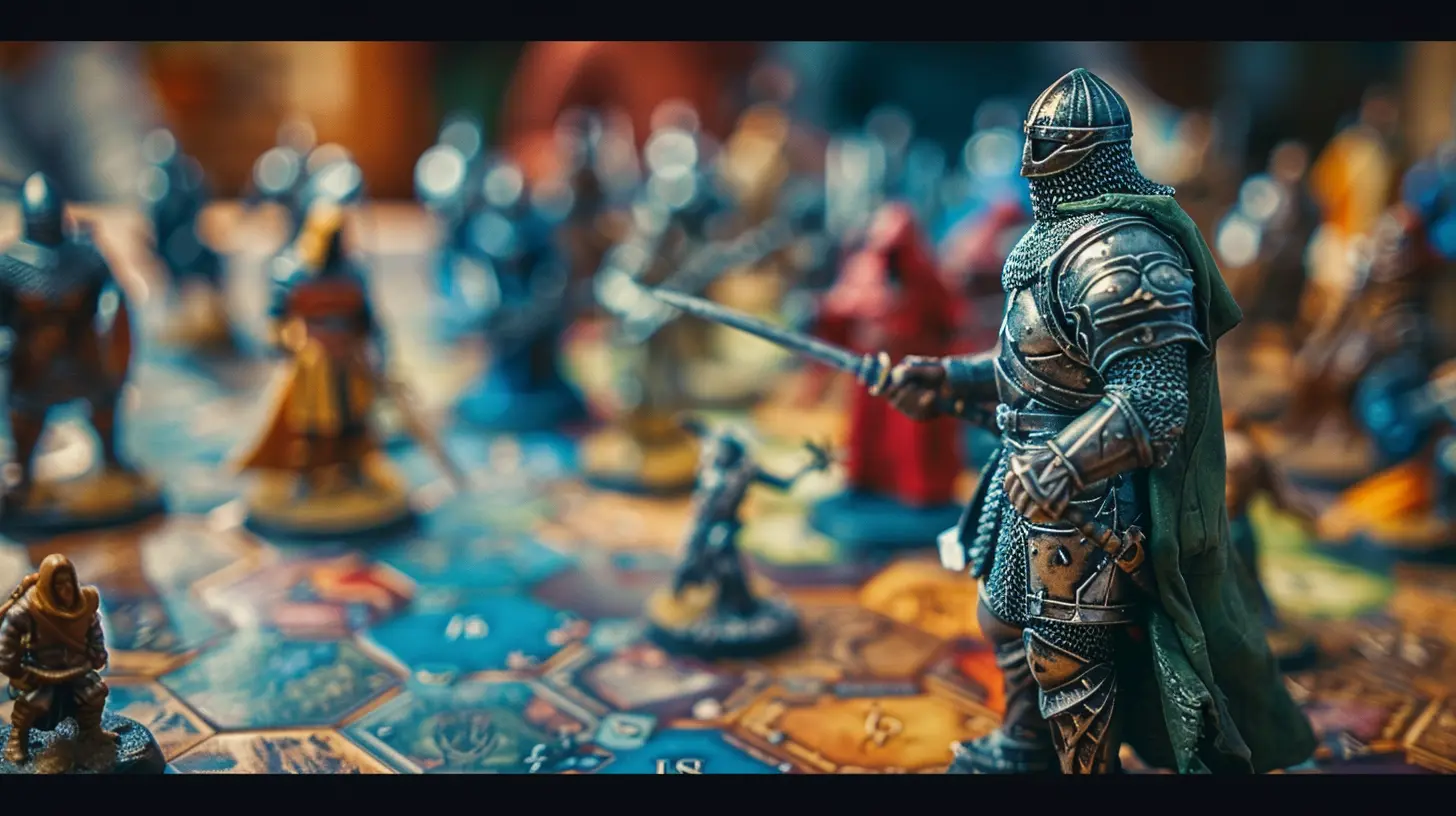
What Exactly Is a Tactical RPG?
Before we get too deep, let’s define what we’re talking about. A Tactical RPG (or Strategy RPG) is a subgenre of role-playing games that combines traditional RPG elements—like character leveling, storytelling, and gear—with tactical, grid-based combat. Think chess meets Final Fantasy, or Dungeons & Dragons with a battlefield.In TRPGs, every move matters. Instead of mashing buttons, you’re controlling units on a map, each with their own stats, abilities, and movement ranges. The goal? Outthink, outmaneuver, and outlast your opponent.
Popular titles like Fire Emblem, Final Fantasy Tactics, XCOM, and Disgaea have made the genre more accessible over the years. And it’s not just for hardcore gamers—there’s a flavor for everyone.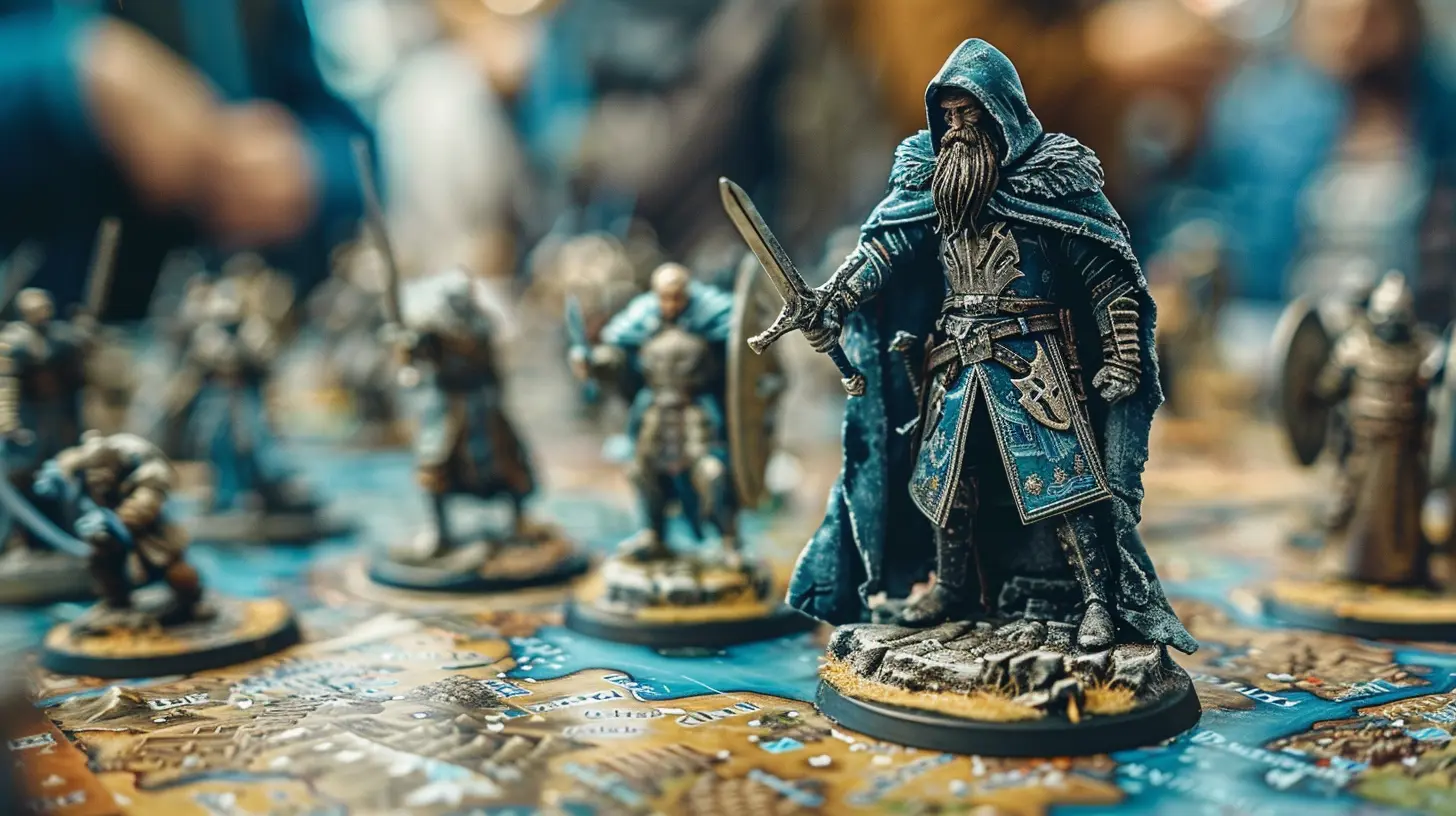
The Irresistible Charm of Planning Ahead
Let’s talk about the planning part—that’s where TRPGs hook you.In most action games, planning is optional. But in a tactical RPG? It's everything. Before battle even starts, you’re tweaking your loadout, choosing your party, and forming a strategy based on enemy positions and terrain.
Don’t bring your archer into a tight alley? Regret. Forget to equip healing items? Big mistake. Every decision has consequences, and that's what makes every victory feel earned.
Planning in TRPGs is kind of like playing with a puzzle—one that changes every battle. You're constantly thinking: Should I flank from the left? Put my tank up front? Save that special attack for the boss?
It turns each mission into a mini-chess match with fantasy monsters, and it’s incredibly satisfying.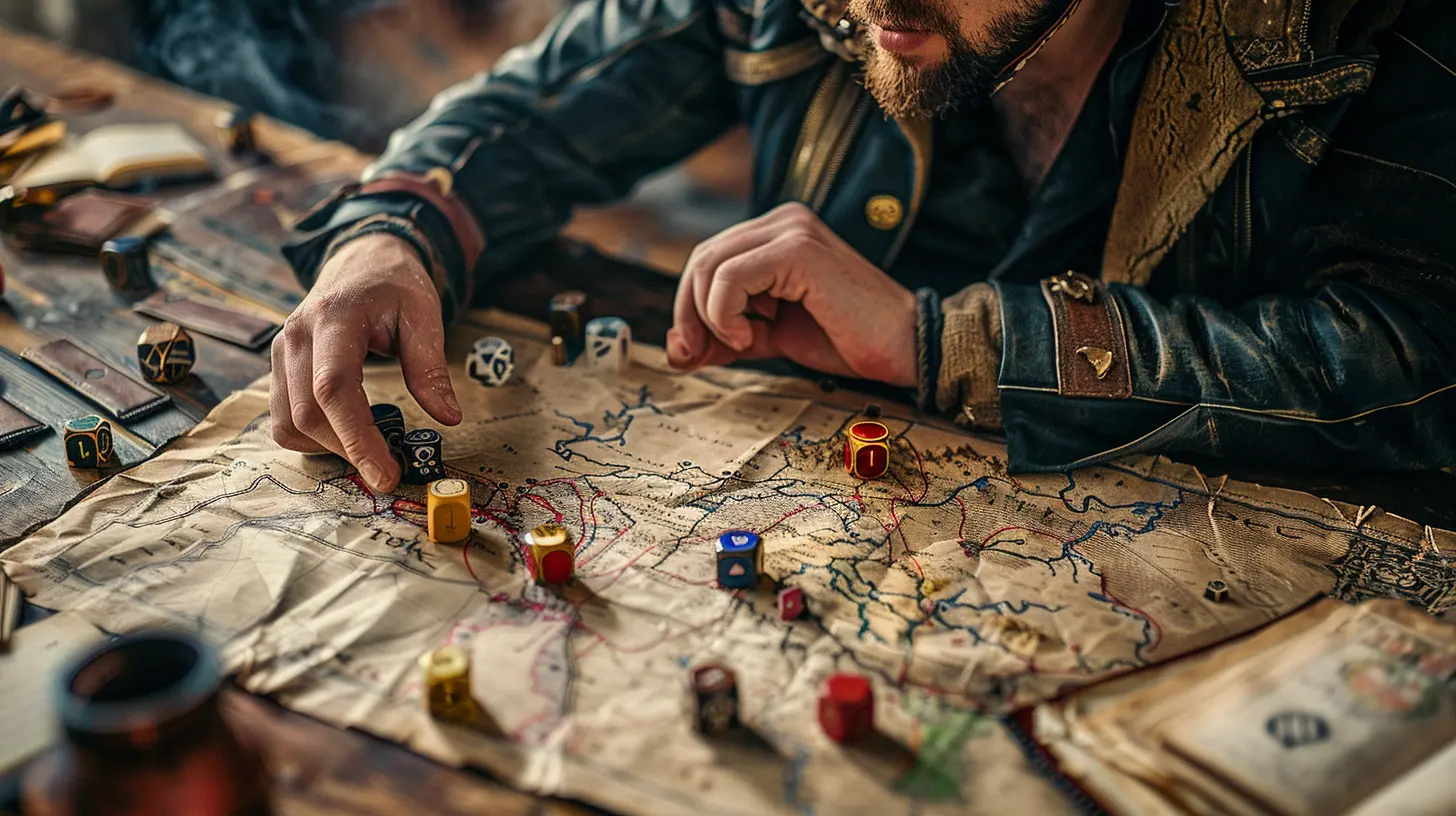
Strategy: The Thinking Gamer’s Playground
TRPGs are the buffet of strategy. You’ve got unit placement, resource management, turn orders, elemental advantages, terrain bonuses—the works. The learning curve can be steep, but once you get the hang of it, it’s like unlocking a new part of your brain.Here’s what makes the strategic layer so juicy:
- Positioning is king: Where you stand can mean the difference between getting one-shotted or getting the drop on the enemy.
- Turn-based combat: No rush. You get time to assess and act, which makes every move feel important.
- Synergy between units: Build a party that complements each other. The mage buffs, the rogue flanks, the tank soaks damage. Feels good when it clicks.
- Environmental variables: Hills grant sight advantage, water slows movement, fog limits vision. The battlefield is as important as your loadout.
TRPGs force you to think several steps ahead—kind of like playing chess, but with dragons and magic spells.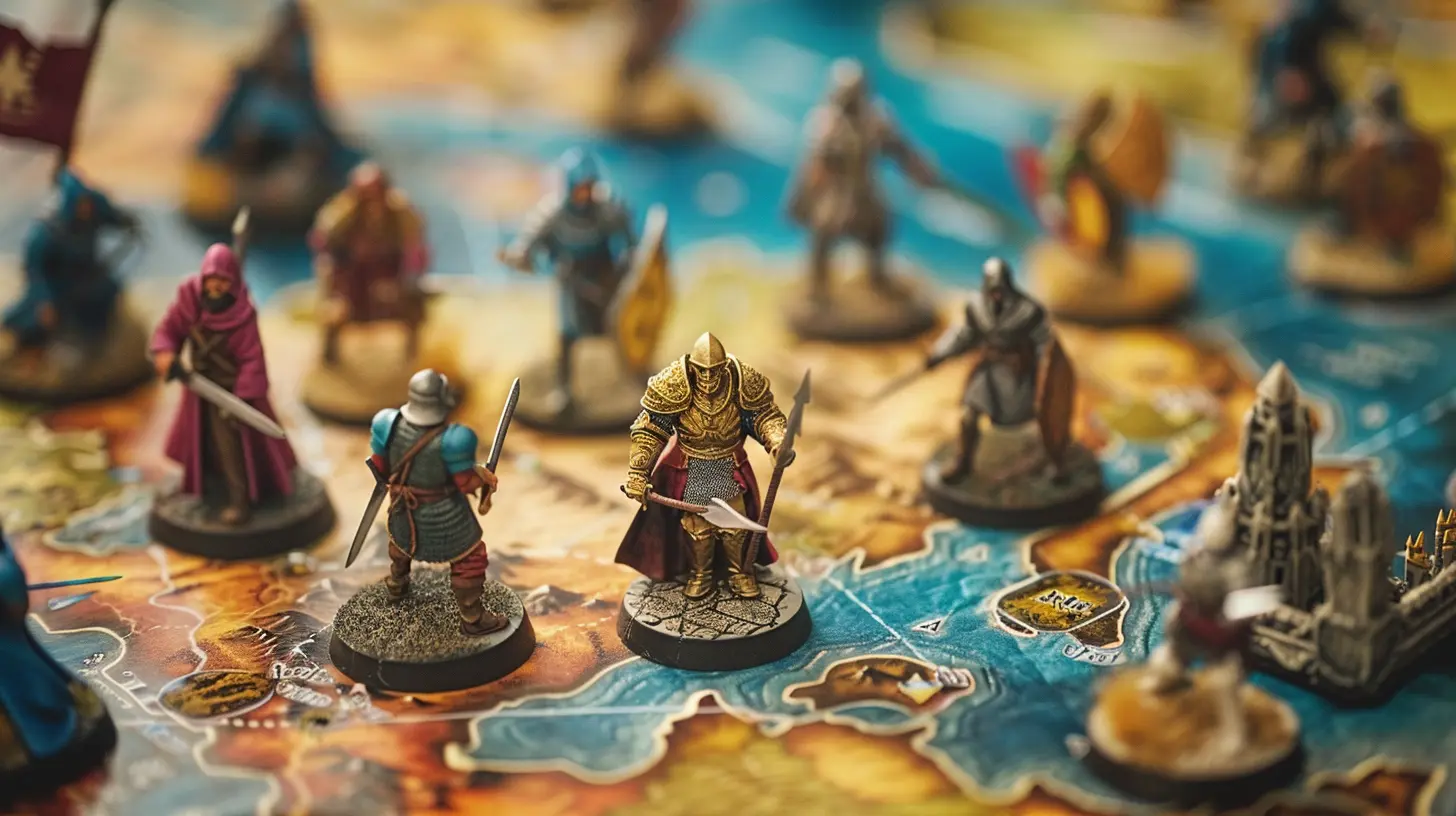
Victory Feels Different Here
Let’s talk about that win-screen feeling. You know the one.It's not just about defeating a boss or finishing a level. It's about knowing your plan worked. That squad you assembled? That decision to pivot strategies mid-fight? That hail-Mary critical hit on the final turn? That’s your brain’s mic-drop moment.
Victory in TRPGs isn’t about reflexes—it’s about brains. Strategy pays off. It’s earned. And when it does, it’s euphoric.
There’s a unique sort of satisfaction that comes when your plan survives contact with the enemy. It’s like watching dominoes fall exactly the way you lined them up—except the dominoes are tiny armored warriors and fireball-slinging wizards.
The Emotional Investment Runs Deep
Okay, let’s get emotional for a second.TRPGs do something really special: they make you care. A lot. About your units. Your team. Your decisions.
Why?
Because they’re often permadeath games. That means when one of your characters dies, they’re gone—forever. (Looking at you, Fire Emblem.)
You name them. You level them up. You give them better gear. You custom-assign their roles, their skills, their relationships. Then they die because you made one dumb mistake. That stings.
So what do you do? You reload. Or maybe you cry a little. But most importantly, you remember.
That emotional investment makes the stakes feel real. Each decision carries weight. You’re not just pushing pixels—you’re moving digital lives.
A Genre That Rewards Patience and Curiosity
If you’re the type of player who likes to take their time, experiment, and learn from mistakes, tactical RPGs are your playground.You’ll be punished for rushing in without thinking. But you’ll be rewarded—gloriously!—for paying attention.
This genre is designed for players who like to:
- Try different team builds
- Reevaluate their strategy after losses
- Experiment with character classes or loadouts
- Optimize the perfect path forward
It’s patient gaming. Calculated gaming. The kind of gaming where every time you lose, you actually get better. Not because you leveled up in-game, but because you leveled up mentally.
Multiplayer and PvP: The Ultimate Mind Games
While most TRPGs are solo affairs, some titles—like Fire Emblem Heroes, Into the Breach, or more competitive modded versions—offer multiplayer and even PvP modes. And let me tell you, playing against another human ups the mind games to 11.Now you’re not just outsmarting AI. You’re outmaneuvering someone who’s trying to outthink you, too.
It’s mental martial arts. You fake a move to bait them. You hide a trap. You guess their next turn. It’s a poker game with health bars and magic spells.
If you thought single-player strategy felt good, multiplayer victories feel absolutely savage. In a good way.
A Genre That’s Evolving (And Growing)
Here’s the exciting part—TRPGs are evolving.Newer games are blending traditional tactical elements with roguelike mechanics, deck-building, or sandbox worlds. Titles like Gears Tactics, Triangle Strategy, and Wargroove are bringing fresh ideas to the table while still respecting the roots of the genre.
And indie devs? They’re killing it. Games like Fell Seal: Arbiter’s Mark and Dark Deity are showing that the genre isn’t just alive—it’s thriving.
The accessibility is better than ever, too. Tutorials, quality-of-life updates, auto-save features—all these ease new players into the genre without watering it down for veterans.
It’s a great time to be a TRPG fan.
Tips for Getting Started with Tactical RPGs
If you're new to the genre and all this talk has you intrigued, we got you. Here are some quick-start tips:1. Start on lower difficulty – Don’t let pride stop you. Learn the ropes first.
2. Use save files wisely – Some games are brutal. Having backups helps.
3. Play the classics – Grab a Fire Emblem or Final Fantasy Tactics and just lose yourself.
4. Don’t be afraid to fail – Losses are learning experiences. Analyze what went wrong.
5. Read tooltips and stats – Knowledge is your best weapon.
6. Keep your team balanced – Variety helps in almost every situation.
Trust the process. Before long, you’ll be running complex tactical plays like a field general.
Final Thoughts: Why We Keep Coming Back
Tactical RPGs are like fine wine—you grow into them. You might bounce off your first one, but once you’ve tasted the thrill of pulling off a flawless strategy, there's no going back.They combine the mental gymnastics of a strategy game with the character-building of a role-playing game. The result? An experience that sticks with you.
There’s pride in playing smart. There’s joy in watching your team work together like a well-oiled machine. There’s heartbreak when you lose a beloved character. And there’s raw, unfiltered adrenaline when you clutch a victory by the skin of your teeth.
That’s the appeal of tactical RPGs: planning, strategy, and victory. Not everyone wants to think five steps ahead. But for those of us who do? There’s no better battlefield.
all images in this post were generated using AI tools
Category:
Role Playing GamesAuthor:

Emery Larsen
Discussion
rate this article
2 comments
Raelyn McCord
Tactical RPGs ignite our strategic minds, transforming challenges into victories. Embrace the thrill of planning and experience the joy of triumph!
September 7, 2025 at 4:18 AM

Emery Larsen
Absolutely! Tactical RPGs truly elevate strategic thinking, turning every challenge into an opportunity for victory. They offer a unique blend of thrill and satisfaction in planning our next moves.
Diesel Pace
Tactical RPGs truly shine with their deep strategy and rewarding victories! Can't wait to dive into my next adventure!
July 9, 2025 at 3:58 AM

Emery Larsen
Absolutely! The blend of strategy and rewarding outcomes is what makes tactical RPGs so engaging. Enjoy your next adventure!

